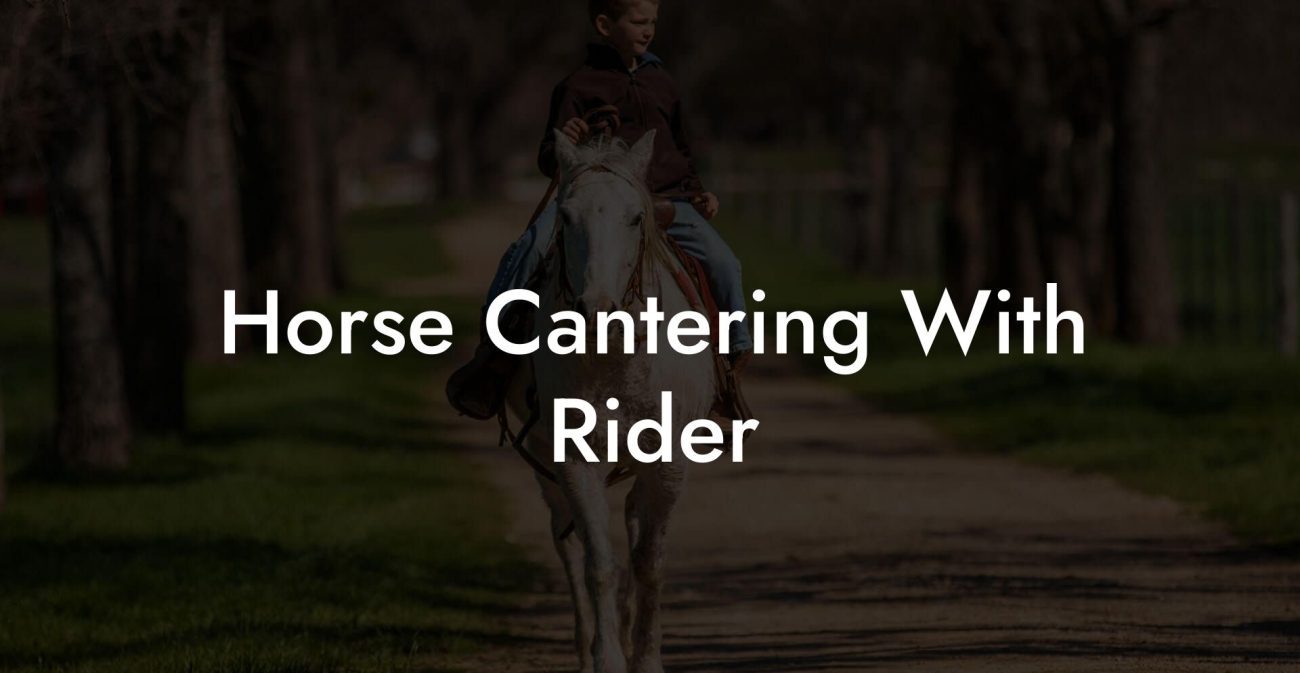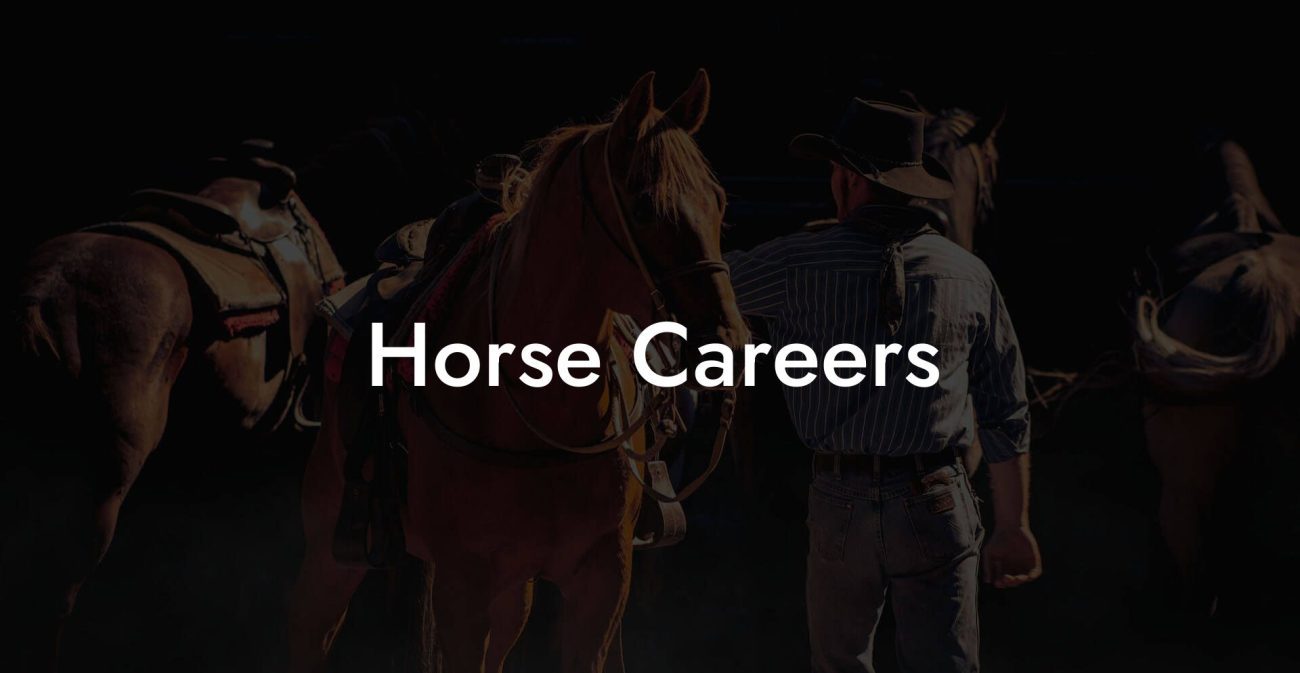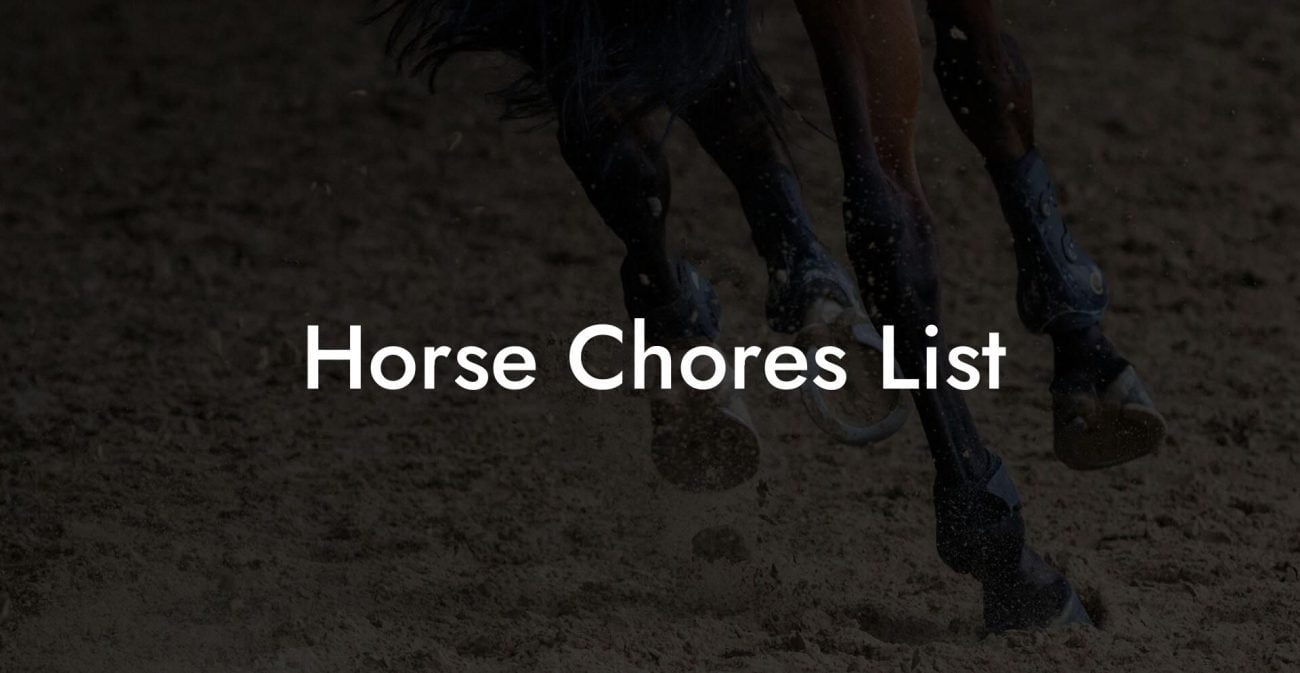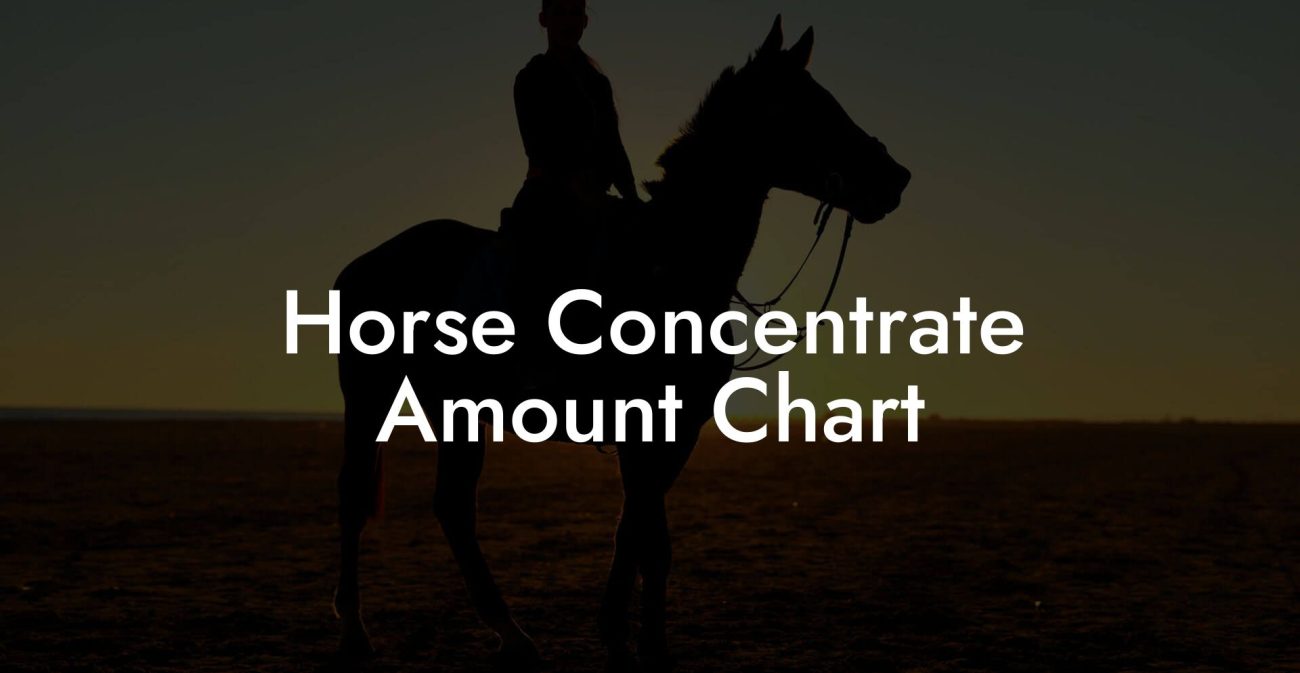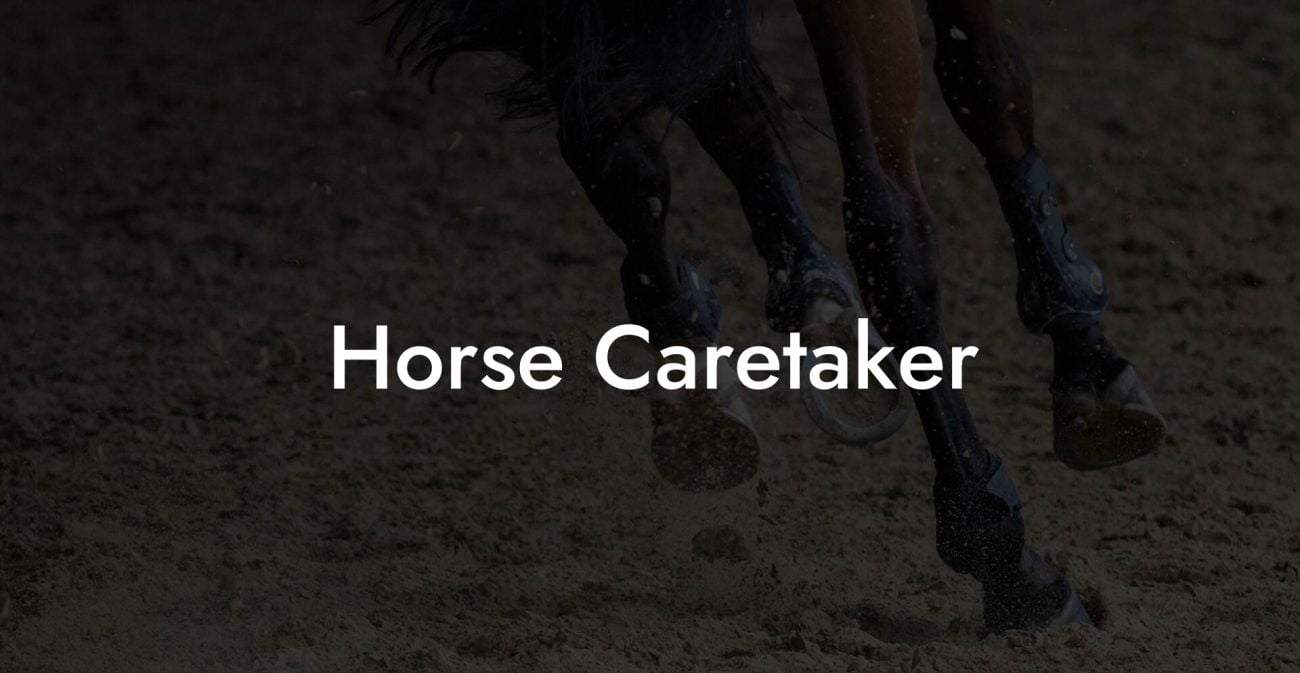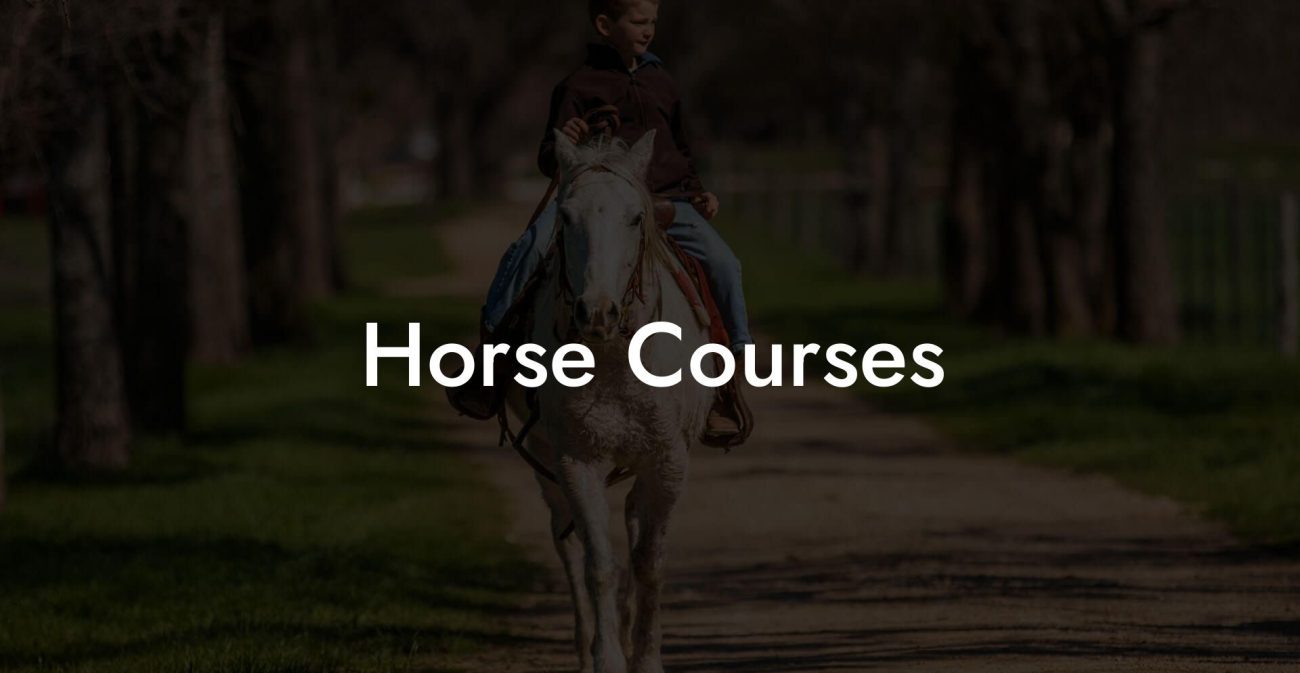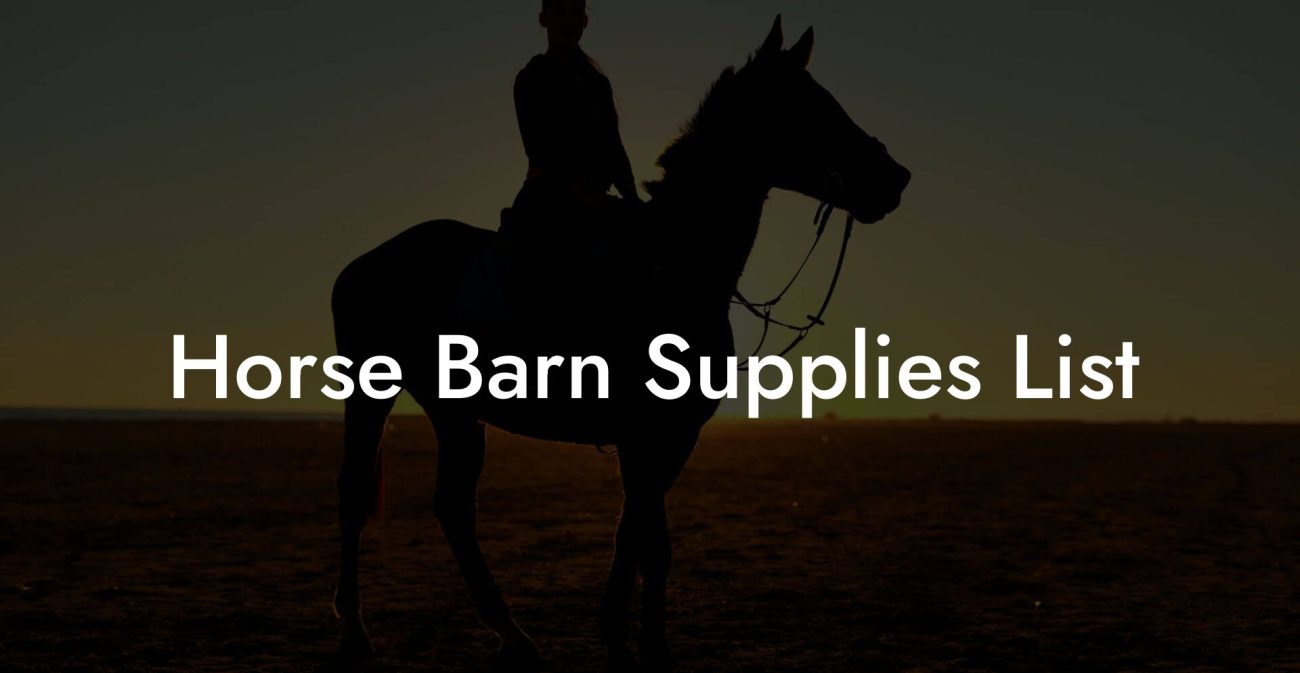Buckle up, rider, this isn’t your typical “pony trot” on a lazy Sunday. Picture yourself saddled up at dawn, the crisp air teasing your senses, as you and your equine partner set off on an epic journey. Today, we’re diving deep into the age-old question: “How Far Can You Ride A Horse In One Day?” Whether you’re a Gen-Z thrill-seeker or a millennial equestrian enthusiast looking to level up your horse care game, this guide is packed with insights, science, and plenty of humor. Get ready for a wild ride that covers everything from your horse’s endurance to the best practices in grooming, training, and nutrition.
Quick Links to Useful Sections
- Unpacking Equine Endurance: What Determines a Horse’s Daily Range?
- The Science Behind the Gallop: How Far Is Too Far?
- Building the Foundation: Preparing Your Horse for Long-Distance Riding
- Consistent Training and Conditioning
- Nutritional Strategies for Sustained Energy
- Preventive Veterinary Care and Routine Check-Ups
- Gear Up: Essential equipment and Gadgets for Extended Rides
- Saddle and Tack Considerations
- Wearable Tech: Monitoring and Communication
- Safety Gear and Emergency Equipment
- Strategies on the Trail: Maximizing Distance Without Sacrificing Comfort
- Mix It Up: Vary Your Pace
- Regular Breaks and Checkpoints
- Incorporating Mental Pit-Stops
- Equine Comfort: Post-Ride Recovery and Daily Horse Care
- Cool-Down Routines
- Rehydration and Nutritional Replenishment
- Inspection and Maintenance
- Daily Grooming and Check-Ups
- Trail Tales: Real-Life Adventures in Long-Distance Horse Riding
- Case Study 1: The Sunset Gallop
- Case Study 2: From Couch to 80 Miles
- Case Study 3: The Community Caravan
- Tips and Tricks for Sustaining Long Rides: Insights from Experienced Riders
- Expert Advice: When to Push the Limits and When to Call It a Day
- Resources and Community Support: Your Next Steps
- Equestrian FAQ: Your Burning Questions Answered
- Your Path to Epic Rides and Holistic Horse Care
Unpacking Equine Endurance: What Determines a Horse’s Daily Range?
Before you start setting mile markers and planning your victory laps, it’s essential to understand that a horse’s stamina isn’t just about pure willpower, it’s a delicate balance of biology, training, terrain, and a sprinkle of magic (okay, maybe not magic, but you get the idea). Several factors influence how far your horse can comfortably travel in a single day:
- Breed and Genetics: Some horse breeds, like Arabians and Quarter Horses, are built for endurance, while others may excel in short bursts of speed or strength. Genetics plays a huge role in determining your horse’s baseline stamina.
- Age: Young horses typically have boundless energy, but with lack of experience. Mature horses, on the other hand, offer a balanced mix of endurance and wisdom, though they may require more careful management as they age.
- Fitness Level: Just like us gym enthusiasts, a well-conditioned horse can go the distance. Regular training, appropriate conditioning, and gradual ramp-ups to more extended rides ensure your horse is ready for the challenge.
- Terrain and Weather Conditions: riding through flat, well-paved trails versus undulating, rugged terrain can significantly impact distance. Extreme weather, think scorching heat or bone-chilling cold, also plays a role in limiting how far a horse should trot in a day.
- Nutritional health: A balanced diet rich in the right nutrients is critical for maintaining energy levels. Hydration, high-quality forage, and supplements when necessary can help your horse perform at its peak.
- Rider Experience and Communication: The way you ride, communicate, and read your horse’s signals can make all the difference. A confident, empathetic rider ensures that the horse feels secure, reducing undue stress and conserving energy for the long haul.
Each of these elements interacts to set the stage for how far your horse can comfortably go in a day. In reality, the answer isn’t a one-size-fits-all figure, but a dynamic equation based on individual circumstance.
The Science Behind the Gallop: How Far Is Too Far?
Let’s dive into some equine physiology: when you think about the daily traveling capacity of a horse, scientists and trainers often refer to it in terms of “work units” or hours of riding rather than just distances. In ideal conditions, many endurance horses can cover anywhere between 50 to 100 miles in a carefully structured competition. But that doesn’t mean every ride should be a near-endurance marathon.
Consider this: a racehorse can sprint impressive speeds on the track, but the distance you can realistically travel is dictated by muscle recovery, joint health, and overall cardiovascular endurance. Modern research underscores that a balanced approach, coupling periods of trotting, cantering, and walking, optimizes your horse’s performance and helps stave off fatigue, injury, and burnout.
It’s also essential to tailor the ride to the specific objective. Are you training for endurance competitions or simply enjoying a long scenic trail ride with your best four-legged friend? The answer to “how far” really comes down to your horse’s training history, overall fitness, and, importantly, the quality of care it receives before, during, and after the ride.
Building the Foundation: Preparing Your Horse for Long-Distance Riding
Preparation is everything. Just like prepping for a marathon, your horse needs a well-thought-out regimen before embarking on a long-day ride. Here’s how to ensure your equine buddy is primed to go the distance:
Consistent Training and Conditioning
Developing endurance is all about consistent, moderate training. Gradually increasing the distance and intensity of your rides helps your horse’s muscles, cardiovascular system, and joints adapt over time. Incorporate interval training that combines periods of steady trotting with bursts of faster-paced riding to mimic real riding conditions.
Remember, consistency trumps intensity. A training schedule that ramps up too quickly can lead to burnout or even injury, not exactly the kind of “ride to remember” you’re aiming for.
Nutritional Strategies for Sustained Energy
The secret sauce to long-distance riding isn’t hidden in a fancy supplement bottle, though high-quality nutrition does play a vital role. Here are some nutritional pointers to keep in mind:
- High-Quality Forage: Ensure your horse’s forage is rich in nutrients and free from mold or contaminants. Natural grasses, alfalfa, and hay make up the bulk of a rider’s fuel.
- Balanced Grains: In moderation, grains such as oats can provide the extra kick of energy needed for demanding rides.
- Hydration: A continuously hydrated horse is a happy, healthy horse. Always have fresh water on hand, and consider adding electrolytes during longer rides to replace what’s lost in sweat.
- Supplements: Omega-3 fatty acids, vitamins, and minerals can bolster your horse’s stamina and recovery. Consult with your veterinarian to tailor the right blend of supplements for your horse’s unique needs.
Pairing proper nutrition with a balanced training regimen is the cornerstone of maximizing your horse’s distance capabilities.
Preventive Veterinary Care and Routine Check-Ups
Just as we get annual check-ups to keep our bodies in check, horses need regular vet visits. Routine dental care, hoof care, and general health assessments ensure early detection of potential issues that could derail a long ride. A trusted veterinarian will also advise on vaccinations, deworming schedules, and overall fitness tracking, key components for optimal long-distance performance.
In the realm of equine sports, preventive care can make the difference between a triumphant journey and a ride marred by injury or fatigue.
Gear Up: Essential equipment and Gadgets for Extended Rides
No epic adventure is complete without the right gear. Equipping your horse and yourself with the proper equipment not only enhances performance but also keeps both of you safe throughout the ride.
Saddle and Tack Considerations
A well-fitted saddle is crucial. An ill-fitting saddle can cause discomfort and long-term physical damage to your horse’s back. Look for breathable, padded saddles that distribute weight evenly. Ensure that the girth, bridles, and other tack are also the right fit, after all, you don’t want to be spending half the day adjusting gear.
Wearable Tech: Monitoring and Communication
Modern technology has revolutionized horse riding. From GPS trackers that log your ride’s distance and speed, to wearable devices that monitor your horse’s heart rate and overall performance, technology is your new best friend on long rides. Apps built for equestrians can help monitor everything from weather conditions to recommended hydration stops, allowing you to plan the ride down to the last detail.
Safety Gear and Emergency Equipment
Safety should never be an afterthought. Ensure that both you and your horse are equipped with:
- First Aid Kits: Stocked with essential supplies to address minor injuries or emergencies.
- Reflective Gear: For those early morning or late evening rides, high-visibility vests and helmets help keep you safe when natural light is low.
- Communication Devices: Carry a fully charged mobile device or a dedicated GPS messenger if you’re venturing into remote areas.
- Compact Nutritional Snacks: For you and your horse, energy bars, electrolytes, and water are essential, especially during long breaks.
Investing in quality gear not only improves the overall experience but also underscores your commitment to the well-being of your equine partner.
Strategies on the Trail: Maximizing Distance Without Sacrificing Comfort
When tackling a long ride, the goal isn’t just to hit a number on the odometer, it’s to ensure both you and your horse enjoy the journey. Here are some strategies that seasoned riders swear by:
Mix It Up: Vary Your Pace
Instead of maintaining a constant pace, alternate between different gaits. Start with a brisk walk to warm up, progress into a controlled trot, and break into a canter when conditions permit. Alternating the pace not only maximizes distance over time but also minimizes sustained strain on your horse’s muscles.
Regular Breaks and Checkpoints
Think of your ride as a series of mini-adventures. Schedule regular breaks to allow your horse to rest, drink water, and cool down. Use these checkpoints as opportunities for quick grooming sessions, a few minutes brushing off dust or checking for any signs of discomfort can go a long way in preventing injuries.
Incorporating Mental Pit-Stops
Long rides aren’t just physically challenging, they can be mentally draining too. Engage in light conversation with fellow riders, listen to your favorite tunes, or simply enjoy the natural rhythm of the trail to keep boredom at bay. A relaxed rider contributes to a relaxed horse, creating a positive feedback loop that enhances endurance.
Balancing speed with periodic rest ensures that the ride remains enjoyable, sustainable, and safe for both you and your trusty companion.
Equine Comfort: Post-Ride Recovery and Daily Horse Care
The ride may be over, but your responsibilities as a horse caregiver continue long after you’ve parked the saddle. Post-ride recovery is crucial, not just to mend the physical exertion of a long ride but also to ensure your horse is ready for its next adventure.
Cool-Down Routines
Just as warming up is essential before a ride, cooling down is equally critical afterward. Allow your horse to walk at a relaxed pace immediately after the ride to gradually lower its heart rate. Incorporate gentle stretching and light grooming to help dissipate lactic acid build-up in the muscles.
Rehydration and Nutritional Replenishment
After a strenuous ride, rehydration is paramount. Provide fresh water, and consider offering a small, nutrient-dense recovery meal. Supplements such as electrolytes and branched-chain amino acids may be beneficial for muscle recovery, just be sure to follow your veterinarian’s recommendations.
Inspection and Maintenance
A post-ride inspection is a must. Check your horse for any signs of soreness, cuts, or abrasions. Pay attention to your tack as well; cleaning and inspecting your saddle, bridle, and other gear after each ride not only extends their lifespan but also prevents potential discomfort on future rides.
Daily Grooming and Check-Ups
Beyond the immediate recovery, daily horse care is a holistic process that includes regular grooming, hoof cleaning, and even massage sessions. Routine care strengthens your bond with your horse and ensures that small issues are addressed before they become major problems.
The way you care for your horse on a day-to-day basis sets the stage for all the adventures you’ll share together. A well-cared-for horse is not only a joy to ride but also an enduring partner on your long-distance journeys.
Trail Tales: Real-Life Adventures in Long-Distance Horse Riding
Sometimes the best inspiration comes from those who’ve been there, done that, and lived to tell the tale. Here are a few real-life stories that capture the spirit, challenges, and triumphs of riding long distances in a single day.
Case Study 1: The Sunset Gallop
Jessica, a young urban equestrian with a passion for adventure, decided to test her limits on a breezy summer evening. Starting at dawn on a scenic rural trail, she and her Arabian mare “Mystique” gradually built their pace. With Jessica’s strategic stops for light grooming and nutrient-packed snacks for Mystique, they ended their ride just as the sunset painted the sky in hues of gold and purple. The ride spanned over 60 miles, but the secret ingredient to their success was spontaneity intertwined with careful preparation.
Case Study 2: From Couch to 80 Miles
Meet Marcus, a tech-savvy millennial who transitioned from primarily indoor desk work to leading an active, outdoor life. Inspired by social media influencers in the equestrian space, Marcus dedicated several months to strengthening his riding skills and conditioning his trusty warmblood. His goal? An ambitious 80-mile ride in one day. Through an ingenious blend of interval training, nutritional hacks, and smart use of wearable tech for monitoring his horse’s metrics, Marcus achieved his target and learned that perseverance, proper planning, and community support make anything possible.
Case Study 3: The Community Caravan
In a spirited collaboration that brought together riders from different backgrounds, a community in the heartland organized a day-long charity ride spanning 55 miles. The diverse group shared tips on hydration, pacing, and post-ride care, each member learning from the other’s experiences. For many, this wasn’t just about the distance; it was an expression of camaraderie, shared values in responsible horse care, and the immense satisfaction of pushing collective boundaries.
These stories are more than a collection of impressive statistics, they showcase the art of balancing thrill, care, and smarts on long rides. They remind us that every mile is a chapter in your unique riding journey.
Tips and Tricks for Sustaining Long Rides: Insights from Experienced Riders
The equestrian community is a treasure trove of knowledge, and here are some of the standout tips from riders who’ve logged miles on end:
- Plan Your Route: Study maps, check local weather conditions, and choose routes with plenty of access to water and shade. A well-planned route means fewer surprises and more enjoyable miles.
- Stay Flexible: Listen to your horse’s body language. Sometimes, what looks like determination might actually be subtle signs of fatigue. Allow for extra breaks and adjust your pace accordingly.
- Connect with Fellow Riders: Join online communities, local riding clubs, or social media groups where you can share and gain advice, from gear recommendations to nutrition tips.
- Invest in Quality Equipment: Don’t skimp on gear. Quality tack, safety equipment, and wearable technology can greatly enhance both your performance and your horse’s comfort.
- Document the Journey: Whether it’s through social posts, a riding journal, or vlogs, documenting your ride not only inspires others but also provides valuable insights for improving future adventures.
These insider tips reaffirm the fact that long-distance riding is as much about mental agility and community support as it is about physical preparation.
Expert Advice: When to Push the Limits and When to Call It a Day
Even the most ardent riders must learn when to push through and when to ease off. Equestrian experts emphasize that knowing the threshold between endurance and overexertion is key to a healthy, sustainable riding lifestyle.
Veterinarians and seasoned trainers alike suggest monitoring vital signs such as your horse’s heart rate, respiration, and gait consistency. Learn to recognize subtle cues like excessive sweating, stiffness in the joints, or reluctance to pick up the pace. These early warning signs are your horse’s way of saying, “Let’s slow down before something goes wrong.”
In a nutshell: respect the animal’s limits. A long ride isn’t about pushing both rider and horse to the breaking point; it’s a shared journey where mutual communication and empathy lead to unforgettable adventures. Practicing mindfulness, both on and off the saddle, ensures that each ride contributes to long-term longevity rather than short-term exhaustion.
Resources and Community Support: Your Next Steps
If you’re feeling inspired and ready to hit the trails, consider tapping into the vast network of equestrian resources that can help you level up your riding game. The world of horse care and long-distance riding is filled with passionate communities, expert blogs, online forums, and local clubs that cater to Gen-Z and millennial enthusiasts alike.
Start by checking out veteran riding blogs, YouTube channels dedicated to equine training, and social media groups where riders share their daily adventures, gear reviews, and maintenance routines. Not only will you gain invaluable insights, but you will also be joining a vibrant community that values safety, sustainable practices, and top-notch horse care.
Additionally, consider enrolling in workshops or short courses on horse nutrition, endurance training, and tack maintenance. Knowledge curated by professionals can make a world of difference in your riding experience. With the blend of technology and tradition, you’re now equipped with the tools needed to make your next long ride both exhilarating and safe.
Remember, the journey isn’t just the distance you ride, it’s the connections you make along the way, the lessons learned from every step, and the shared laughs and mutual love for these majestic animals.
Equestrian FAQ: Your Burning Questions Answered
Let’s dive into some of the most frequently asked questions about long-distance horse riding and caring for your equine companion during those marathon rides:
1. How far can a typical horse travel in one day?
Depending on the breed, conditioning, and terrain, an average horse can comfortably cover between 30 to 50 miles in a day. Endurance horses with specialized training may go even further, upwards of 60 to 100 miles under competition settings.
2. What are the most important factors in determining a horse’s endurance?
Key factors include the horse’s breed, age, overall fitness, nutritional health, and the riding environment. Proper training and regular veterinary check-ups are critical to ensuring peak performance.
3. How should I prepare my horse for a long ride?
A balanced combination of gradual training, proper nutrition, consistent veterinary care, and the right equipment is essential. Incorporate warm-up and cool-down routines to protect your horse’s muscles and joints.
4. What gear is essential for long-distance riding?
Invest in a well-fitted saddle and comfortable tack, safety equipment such as reflective vests and helmets, wearable tech like GPS trackers and heart rate monitors, and don’t forget a sturdy first aid kit.
5. How do I know when to slow down or call it a day?
Monitor your horse's vital signs, behavior, and physical cues. Excessive fatigue, sweating, limping, or reluctance to move are signs that it's time to take a break or end the ride.
6. Are there any specific dietary recommendations for a horse before a long ride?
Yes, a diet rich in quality forage, balanced grains, and electrolytes is recommended. Consult with your veterinarian to tailor a nutritional plan that optimizes energy and aids muscle recovery.
7. What are some of the common mistakes riders make on long-distance rides?
Common pitfalls include skipping warm-up and cool-down routines, overestimating the horse’s stamina, inadequate hydration, and failing to monitor for early signs of fatigue or injury.
8. Can technology really help improve my horse’s endurance?
Absolutely. Wearable devices and smartphone apps can track your ride’s statistics, monitor vital signs, and even provide weather updates, all of which can aid in planning and ensuring a safer journey.
Your Path to Epic Rides and Holistic Horse Care
Embarking on a long ride is a blend of adventure, science, and deep connection with your horse. From understanding the various factors that determine daily range to implementing a well-rounded regimen of training, nutrition, and proper gear selection, every component plays a vital role in ensuring a safe and exhilarating journey. Whether your goal is to break some personal records, join endurance competitions, or simply enjoy the liberating feeling of an open trail ride, your horse’s well-being must always be the top priority.
As you plan your next big adventure, remember that this journey is as much about personal growth as it is about the miles covered. The way you care for your horse, through meticulous attention to grooming, tailored nutrition, and regular veterinary check-ups, mirrors the respect you have for the bond you share. In an age where every moment counts and authenticity trumps perfection, take pride in every mile your horse covers with you, and let each ride be a reminder of the beautiful synergy between human and equine.
Explore communities, learn from experts, and don’t be afraid to push your own boundaries, just always keep a keen eye on your horse’s cues. With holistic care and a well-planned strategy, you’re not just riding; you’re forging memories that last a lifetime and cultivating a partnership that grows stronger with every trail.
So, gather your gear, fuel up with nerves of steel and a dash of humor, and start planning that epic ride. Your journey to discovering how far you and your equine partner can go begins with one inspired ride at a time.



